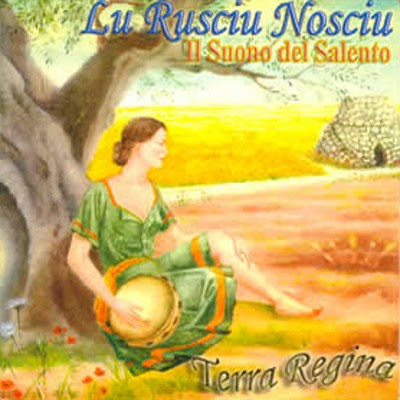
On September 20, 1990 Rosa Balistreri, one of the most forceful and significant voices of our folklore tradition, died in Palermo .
Since 1964, when Rosa Balistreri was invited to the "Festival della Canzone Popolare" in Salerno and – together with Giovanna Daffini – was awarded a prize, she was also one of the key figures of the folk revival which developed in Italy in the 60's and 70's.
She soon became one of the most celebrated personalities in the rediscovery of folk music which caused a sensation at the time. She was officially acclaimed, so to speak, when she was invited by the "Nuovo Canzoniere Italiano" to take part in Dario Fo's «Ci ragiono e ci canto»: a piece of great significance, a kind of "sung manifest" of this new movement.
The harsh authenticity of her voice, full of dark timber, powerful and intensely dramatic, made her a symbol of these polemical and aggressive years when great interest for our own rich and varied, traditional culture was rediscovered.
Her interpretations were rigorous, pure, as if chiseled in stone, and created a connection between the suspense of her songs, voice and the history and plight of a people: the Sicilian people.
Her face, as if marked by age-old insuppressible grief, seemed to be the most evocative portrayal of the anguish and poverty which her songs are about, songs that come from the same traditional, rural background as she does.
It is not only a social and cultural, but, moreover, a civic duty to remind people of Rosa Balistreri and all the other writers, literati, theater people, puppeteers, storytellers («cuntisti») who represent the highlights of our tradition and cultural roots, but also all the scholars (Pitrè, Salamone Marino, Cocchiara, Vigo, Uccello, Favara, Feliciotto and others) who devoted their entire life to safekeeping the heritage for the future generations.
In a highly regarded effort to revive their culture heritage, the Foundation of the Sicilian Symphony Orchestra has granted permission and asked singer and author Etta Scollo, who was born in Catania (and has been living in Hamburg for many years), to do an interesting project titled «Canta Ro'!» (the words used by the writer Ignazio Buttitta to tell Rosa Balistreri to sing). The Foundation has also included it in the summer season at various «places of historical and artistic importance».
The debut performance of «Canta Ro'!» (subtitle: «Rosa, the Last Sicilian Singer») was staged in the courtyard of the Regional Library in Palermo, and it was also performed in the courtyard of the archbishop in Cefalù, as well as in the gardens of the 300-year-old Villa Spedalotto in Bagheria. The piece was conducted by the renowned maestro Angelo Faja.
It was an incredible success, almost surprising for a project that had hundreds of problems to deal with: they had to transfer Balistreri's expressive world into a symphonic orchestration with the danger of falling into the trap of merely presenting a seemingly inevitable imitation. Scollo's intelligence prevented the latter by presenting exquisite unreleased arrangements which she had worked out in collaboration with other musicians in Hamburg and she avoided imitating Balistreri's voice and singing. The musical project ("This is the project of my life," she said to the audience emotionally) aroused great interest with Maestro Faja and the professors of the orchestra who greatly admired the dainty musician with the wonderful voice and the pathos that is becoming increasingly rare in this day and age.
Without doing injustice to the spirit with which Balistreri would sing her ballads, Etta Scollo has found a very personal way of interpreting the songs (also on account of the presence of guest musician and multi-instrumentalist Fabio Tricomi) that suits her own voice and its peculiarities.
The pieces range from «Quantu basilicò», «U cunigghiu», «Lu focu di la paglia», «A Curuna» to the jail songs «Lu libbru di li nfami», «Nda la Vicaria» or Ignazio Buttitta's manifest against control and exploitation, «Li pirati a Palermu», and end with the heartbreaking «Quannu moru», Balistreri's real and true spiritual testament. «I wanted to remind people of her for that», said Etta Scollo.
Pippo Ardini
•
Etta Scollo & the Orchestra Sinfonica Siciliana directed by Angelo Faja
•
01 Quantu basilico'
02 U pumu
03 L'anatra
04 Cu ti lu dissi
05 U cunigghiu
06 Ntra viddi e vaddi
07 I pirati a Palermu
08 Rosa canta e cunta
09 Lu libbru di li nfami
10 Nta la vicaria
11 Lu focu di la paglia
12 A curuna
13 Quannu moru
•
2005 • Soul food PRE006
•
English lyrics
•
Canta Ro'














































